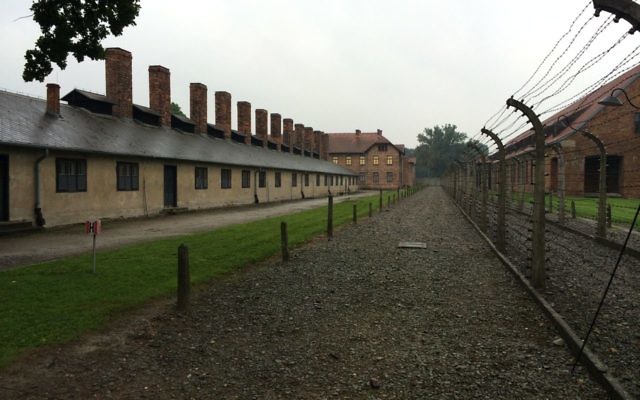The screams of souls
I AM sitting in an apartment in the Polish town of Katowice. I have just been to Auschwitz. Are there words? No, of course not, but I will spill some onto the page nonetheless.
I AM sitting in an apartment in the Polish town of Katowice. I have just been to Auschwitz. Are there words? No, of course not, but I will spill some onto the page nonetheless.
Nothing feels worthy or accurate or decent or right, yet write I must. I have no direct history with that place. No relatives, no threads of pain through our family story, and yet, of course, ultimately I do. We do. For Auschwitz was about the industrial killing of the “other”.
Of anything or anyone that was deemed “not of us”. The “us” as defined by blunt, brutal power. Seized power. Power from acquiescence. The power of organisation. It is the “organisation”, the administrative chill of Auschwitz that frightened me. The documentation. The order. The logistics. The humanity is all on the side of the suffering.
As I was driving toward the camp, now a museum, a song came on the radio. I don’t know why I even had the radio on, but I did. The radio station was an Austrian station, as I’d been in Vienna previously. The song was Always Look On The Bright Side of Life. Was it funny? Yes. No. I don’t know. It was profoundly unsettling and strange. I listened very carefully to every word, and to its flippant philosophical musings, which suddenly didn’t feel quite so flippant. I reflected on Primo Levi and his writings. (If you haven’t read Primo Levi on Auschwitz, I beg you to do so.) I pondered the concept of “joy”, and was then immediately reminded of the Nazi slogan “strength through joy”. To even appropriate that rare human delicacy, joy, is so deeply (yes, I’ll say it) evil, it makes me struggle to breathe.
As I pulled into the carpark, which was filled with cars and buses, I saw a cafe. I got a coffee. Even that simple act felt strange. I was so supremely self-conscious. Were any of my actions disrespectful? I made little eye contact with anyone the whole time I was there. As I approached the entrance to the camp, with its sign “Arbeit Macht Frei” (work makes liberty/freedom) I felt like my body was water, and if I didn’t hold still, tears would never stop flowing. The sky was grey and the drizzling rain did its work on my behalf.
Row upon row of dull, well-constructed buildings are surrounded by (what were) electrified, barbed wire fences. It is so darkly mundane and blunt, the lush green grass in one of the yards feels strangely out of place, as if nature does not belong. The grassed area is where many very public executions took place. Of course. For nothing and nowhere in this dull hell can be pleasant.
Inside the various orderly structures are monuments to the different groups of “others” who suffered. Their stories, their clothes, their photos. Much of what you see can never be unseen. The children. The pseudo-scientific experiments. The well-fed SS officers. The faces, followed by the administrative papers on their demise. The horror is without end.
In one hall, there is a hole in the wall. While excavating the site in 1960, they discovered, hidden in a wall, some stored personal belongings, probably preparations for an escape attempt. There are leather boots, socks, papers, a cigarette tin, string and a few other items. That they were still there 15 years after the liberation of the camp suggests there was no escape.
The last place I saw, the last place many at Auschwitz saw, was the crematorium. Queuing to get into a place where no one wanted to go is sickening. It is large. It is industrial. It has huge furnaces. It has a huge chimney. It has no colour you could describe. It is without colour. It has scratches all over the walls. The screams of souls are silent.
The rain kept falling. The sky stayed grey as I drove out into the still scarred land that is Poland. I’m glad I went, and I won’t forget.
I left the radio off.
RHYS MULDOON
Rhys Muldoon is an Australian actor. He has starred in House Husbands, Lockie Leonard and Who killed Dr Bogle and Mrs Chandler?


comments